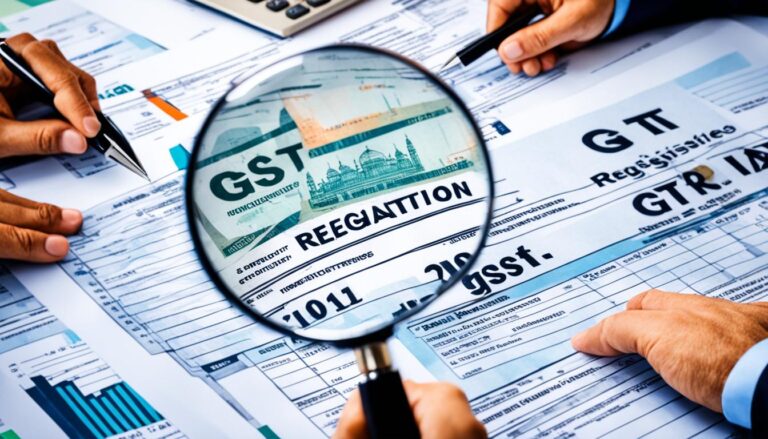Hyderabad , India
Have you ever wondered why some startups do well during tax disputes while others struggle? Dealing with tax laws can be tough, especially when facing the IRS. At Am Accountable, we offer virtual accounting services for startups in India. We know that tax issues can be a big hurdle for businesses.
It’s crucial to know how to solve tax problems to keep your business healthy. By tackling tax disputes early, we can avoid bigger problems with tax authorities.
The angel tax has been a big issue for angel investors in India, affecting the startup world. Looking at IRS tax issues helps us find ways to manage tax disputes well. This approach protects us and helps us grow sustainably.
So, how can we turn tax disputes into chances for growth? We’ll look at effective strategies, important laws, and why having a pro by our side is key in solving tax disputes.
Key Takeaways
- Understanding the importance of solving tax disputes quickly and well.
- Learning about common IRS tax issues we might face.
- Creating plans to collect the right documents for our case.
- Knowing when to get professional help for tax matters.
- Seeing disputes as chances to improve our financial plans.
The Importance of Effective Tax Dispute Resolution
Effective tax dispute resolution is key for both individuals and businesses. Not settling tax disputes can lead to stress, financial problems, and penalties. The costs of IRS tax issues can grow fast if not handled well. Knowing how to deal with tax litigation can reduce these risks and protect our money.
The Finance Minister has proposed budget reforms to cut down on disputes and make things clearer for taxpayers. The GDP growth rate for the next fiscal year is expected to be a strong 10.5%. This shows the government’s focus on sustainable economic growth, including tax reforms. Capital spending is set to rise by 18.2%, which will help boost revenue.
Education and understanding tax laws help in resolving disputes smoothly. The government aims to collect Rs. 25.83 lakh crore in taxes for FY25. The Vivad se Vishwas Scheme is also being introduced to settle pending tax issues, helping taxpayers quickly resolve their disputes.
Knowing how to handle tax disputes can save time and money. As businesses adjust to new tax rules, guiding them through challenges is crucial. With the right tools and knowledge, we can make this process easier and more efficient.
| Key Aspect | Details |
|---|---|
| GDP Growth Rate | Estimated at 10.5% for FY 2024-25 |
| Total Expenditure | Rs. 48,20,512 crore |
| Capital Expenditure | Rs. 11,11,111 crore, with an increase of 18.2% |
| Net Tax Receipts | Estimated at Rs. 25.83 lakh crore for FY25 |
| Fiscal Deficit | Projected at 4.9% |
| New Schemes Allocation | Rs. 2 lakh crore to Department of Economic Affairs |
Understanding Common IRS Tax Controversies
Taxpayers often face various IRS tax controversies, leading to stress and confusion. One big issue is underreporting income, which can lead to audits and more scrutiny. If you don’t file your returns, you’ll face big penalties and interest.
Disputes over deductions are also common. This happens when taxpayers claim expenses the IRS doesn’t agree with. Our knowledge of these issues helps us help others better. In recent years, the IRS has been more strict, making it crucial to be careful with tax reporting.
Using tax attorney services adds an extra layer of protection. These experts can help with compliance and solving disputes. They are key in the appeals process and settling disputes. As we tackle these IRS tax issues, we get better at managing future challenges.
Strategies to Handle Tax Disputes
Handling tax disputes requires careful planning and precision. We start by gathering all the necessary documents. This step is crucial for resolving disputes effectively.
Gathering Necessary Documentation
Collecting documents like tax returns, letters from tax authorities, and financial statements is key. Having all these records helps us prepare a strong case. Without them, our case could be weakened.
Identifying Relevant Tax Laws
Knowing the tax laws that apply to our situation is vital. It helps us talk with tax officials with confidence. Understanding tax rules, changes, and exceptions can lead to better outcomes in disputes.
Resolving Tax Issues with the IRS
Staying on top of tax matters is crucial for both individuals and businesses. Dealing with the IRS directly can prevent issues that come from not understanding or disagreeing with tax rules. We should look into different tax dispute resolution strategies that fit our needs. Options like payment plans can help manage outstanding taxes without causing financial strain.
Another good way to resolve tax issues is through the offer in compromise. This lets taxpayers pay less than what they owe, giving them a fresh start after tax troubles. Joining an amnesty programme can also clear past tax problems without the usual penalties.
Talking to the IRS on time is key to solving tax problems smoothly. Not responding can make things worse, leading to more penalties and interest. Keeping in touch lets us explain our situation and maybe find a solution that works for both sides.
When things get complicated, getting professional tax representation is a big plus. Experts can handle the tricky parts of tax laws and speak up for us during talks. Their deep knowledge can really change the outcome of our tax disputes with the IRS.
Seeing the success of tax resolution efforts is clear as India’s personal income tax collections have grown. They went from ₹5.75 lakh crore in FY 2020-21 to ₹12.01 lakh crore in FY 2023-24. This shows better taxpayer cooperation and government efforts to widen the tax base, highlighting the need for effective tax issue resolution.
Changes like raising the standard deduction from ₹50,000 to ₹75,000 show ongoing tax reforms. These updates prove that solving tax disputes helps not just individuals but also the economy as a whole.
| Financial Year | Gross Personal Income Tax Collections (in crore) |
|---|---|
| 2020-21 | ₹5.75 lakh |
| 2021-22 | ₹7.10 lakh |
| 2022-23 | ₹9.67 lakh |
| 2023-24 | ₹12.01 lakh (provisional as of April 21, 2024) |
When to Seek Professional Tax Representation
Knowing when to get professional help with taxes can really change the outcome of tax disputes. Cases with big money or complex tax laws need expert advice. It’s key to get help when facing deep IRS scrutiny, as the risks are high. A skilled tax lawyer can guide you through tough rules and help make plans to fix tax problems.
Businesses and individuals should think about getting professional tax help in certain situations:
- Disputes over big tax bills or fines.
- When tax laws are complex.
- If the IRS is doing a detailed audit.
- When you don’t have enough proof for your claims.
At Am Accountable, we offer cutting-edge virtual accounting services for startups in India. Our service lets you create a virtual accounting team in just 24 hours. We aim to help you manage tax disputes without hurting your finances. Let us assist you in solving tax problems fast and well.
For more details or to talk about what you need, please contact us at info@amaccountable.com or call 91 91778 42756. If you’re ready to move forward, book a free discovery call at www.amaccountable.com.
The Role of a Tax Attorney in Disputes
Tax attorneys are key in helping individuals and businesses deal with IRS issues. They know a lot about tax laws and fight for what’s best for their clients. By getting tax attorney services, we gain access to their deep knowledge. This helps us make strong cases and talk to IRS reps effectively, which can lead to better outcomes.
These lawyers are crucial in spotting potential problems and keeping us updated. They give us strategies that fit our unique situations, making it more likely we’ll find a solution. With a tax attorney’s help, we can tackle complex tax problems confidently and clearly.
Using tax attorney services means getting great negotiation skills and help in seeing future problems. These experts make the tax dispute process clearer, helping us make smart choices at each step. IRS controversies can be hard to understand, but with their help, we can handle them better.

Steps for Effective Tax Litigation
Starting tax litigation can feel overwhelming, needing knowledge of legal rules and strategies. We aim to simplify steps for resolving tax disputes effectively. Our strategy starts with a detailed review and representation, then moves to thorough court preparation. These steps can greatly improve the chances of winning in tax court.
Initial Assessment and Representation
At the start, we look at the case’s strengths and weaknesses. This step involves checking all important documents and spotting legal points. Our tax experts work with clients to create detailed plans suited to their situation. Good advice helps clients stand strong against the IRS and tackle tax litigation’s complexities. Starting with strong representation is key to solving tax disputes well. For more help, visit our contact page.
Preparing for Court
Getting ready for court means more than just knowing the documents and legal points. It’s about offering strong support during the lawsuit. We push for thorough practice of all possible court situations. Knowing the court process helps clients understand what’s coming.
Good preparation helps tackle any surprises in court. Working with skilled professionals boosts clients’ confidence in court.
Utilising Mediation for Tax Dispute Resolution
Mediation for tax disputes is a great alternative to going to court. It makes solving tax problems quicker and easier. This method encourages both sides to work together, often leading to agreements that help everyone.
One big plus is how cost-effective it is. Mediation can save money and improve relationships. This is key in business, where good relationships can open new doors.
Also, mediation is faster than going to court. It lets businesses focus on their work instead of getting caught up in legal fights. By talking and negotiating well, we can clear up any confusion and find solutions.
A mediator plays a big role in guiding the talks. They help explain each side’s legal position and suggest ways to settle. Their outside view can show how working together can solve tax disputes.
Think about using mediation for tax disputes with the help of experts. This method tackles current issues and helps build better working relationships. It benefits everyone involved.
Understanding the Appeals Process
When facing IRS tax controversies, many turn to the appeals process to challenge decisions they don’t agree with. It’s important to know the steps and what documents you need for a claim. With a clear plan, we can manage tax disputes well and avoid more issues.
The process starts with a notice from the IRS saying you’ve lost. Make sure to read this notice well and see why you lost. You have 30 days to appeal, so being quick is key. You must fill out the forms right, making sure you include all the needed info.
Here are the key documents you’ll need for an appeal:
- The original IRS ruling notice
- Supporting documents that back up your claim
- Any letters you’ve exchanged with the IRS
It’s crucial to put these documents together carefully. If there are mistakes or missing papers, your appeal could be delayed or denied.
Knowing the timelines is also important. Keep track of when you need to send in your appeal and answer any IRS requests for more info.
Recently, the IRS has made changes to make the appeals process faster. They’ve added more staff to speed up hearings and decisions for big tax cases. Keeping up with these changes helps us handle our disputes better.
| Step | Description | Timeline |
|---|---|---|
| 1. Review IRS Notice | Understand the grounds and specifics of the IRS ruling. | Immediately upon receipt |
| 2. Gather Documentation | Collect all necessary documents to support your case. | Within 15 days |
| 3. File Appeal | Submit the appeal, including documentation, to the IRS. | Within 30 days of notice |
| 4. Await Response | IRS reviews the appeal and may request additional information. | Varies (commonly 60-180 days) |
| 5. Final Decision | The IRS issues a final decision on the appeal. | Dependent on complexity |
Handle Tax Disputes: Best Practices for Individuals and Businesses
Handling tax disputes is key for both individuals and businesses. Tax laws can be complex, leading to disputes. It’s vital to follow best practices to manage these disputes well. This means staying organised, keeping clear records, and having all documents ready.
It’s important to talk clearly with the IRS. We should answer questions quickly and keep communication open. This helps solve disputes faster and shows we’re willing to work together, which can help in resolving tax disputes.
Knowing when to take issues higher can change the outcome of a tax dispute. We should think carefully about this and get tax attorney services when needed. They can help us understand our rights and defend against tax claims.
The 2024-25 Budget shows the government’s plan to make tax laws simpler. This will aim to cut down on disputes and court cases. For businesses, especially small ones, these changes could make things easier and lower the chance of tax problems.
- Keep thorough documentation and correspondence records.
- Maintain open communication with tax authorities.
- Engage tax attorney services when necessary.
- Stay informed about recent tax reforms and updates.
- Evaluate the business environment to manage tax obligations effectively.
Using these best practices helps us deal with tax issues confidently. It prevents disputes and makes solving them easier if they do happen.
Leveraging Technology in Tax Dispute Management
In today’s complex tax world, technology is key to handling tax issues well. We can use digital tools to make our work easier and help solve tax disputes. For example, accounting software and online portals help us keep track of important documents and talk to tax authorities better.
By using these advanced tools, we can make tax processes much better. Digital record-keeping cuts down our workload and lowers the chance of mistakes that could cause disputes. Automated alerts and reminders help us meet tax deadlines, avoiding problems with the IRS.
With integrated platforms, we get a clear view of our finances, helping us make smart decisions. These tech tools help us be more accurate and efficient. This leads to a smoother way of solving tax disputes.
| Technology Used | Benefits | Impact on Tax Dispute Resolution |
|---|---|---|
| Accounting Software | Streamlines record-keeping and reporting | Improves accuracy in submissions |
| Online Portals | Facilitates easy access to documents | Enhances communication with tax authorities |
| Automated Alerts | Keeps track of compliance deadlines | Reduces risk of missed deadlines |
| Data Analytics Tools | Provides insights into financial data | Enables proactive issue identification |
Using these new technologies helps us solve disputes better and stay on top of compliance and accountability. Let’s use these innovations to create a strong system for managing and solving tax disputes.
Case Studies of Successful Tax Dispute Resolutions
We look at several tax dispute cases that show how strategic planning leads to success. These examples prove the value of expert help in solving complex tax issues.
A medium-sized business faced big penalties for supposed income misreporting. With detailed documents and strong talks, we helped cut the penalties by 50%. This shows how important it is to manage tax disputes well.
A small business owner got hit with an audit out of the blue. Getting a tax expert on board helped us handle the audit smoothly. Our team found mistakes in the tax rules, which helped our client a lot. This case shows how crucial expert advice is for winning tax disputes.
There was also a big company fighting a huge tax bill over transfer pricing. With deep research and working with auditors, we built a strong case. This convinced the tax people to change their view. This case proves how important research and strategy are in tax disputes.
These stories not only show good strategies but also stress the need for professional help in tax disputes. We’re dedicated to helping our clients get the best results, reducing their stress and uncertainty.
Conclusion
We’ve looked into how to handle tax disputes effectively. It’s key for both people and businesses to know tax laws well. This knowledge helps us handle tax issues better.
Being ready with the right documents is crucial. It boosts our chances of getting a good result. Knowing when to ask for expert help is also vital.
Experts can guide us through tax disputes with ease. This way, we can deal with the IRS confidently. The strategies we’ve talked about help us solve tax disputes more efficiently.
If you want to improve your tax management, consider a free discovery call with Am Accountable. We offer virtual accounting services for startups in India. You can set up your virtual accounting team in just 24 hours with us.
Our services help you save time, cut costs, and work more efficiently. Contact us at +91 91778 42756 or email info@amaccountable.com to find out more.
FAQ
What are the most common types of IRS tax controversies?
Common IRS tax issues include wrong income reports, not filing tax returns, and disputes over deductions. It’s key to know these areas for resolving tax disputes well.
How can we gather the necessary documentation for a tax dispute?
For tax disputes, collect all important papers like tax returns, IRS letters, and financial records. This makes resolving disputes easier.
When should we consider hiring a tax attorney?
Think about hiring a tax lawyer for complex tax laws, big amounts, or IRS attention. They offer valuable advice and speak for us.
What is the process for appealing an IRS decision?
Appealing an IRS decision means writing a formal appeal within the time limit and providing needed documents. This might fix issues without going to court.
How can technology assist in managing tax disputes?
Technology helps with digital tools like accounting software and online services. These make tracking documents and IRS talks easier, helping to reduce disputes.
What alternative methods exist for resolving tax disputes?
Mediation is a way to settle tax disputes without formal court action. It’s cheaper and can keep business relationships strong.
What are best practices for individuals and businesses in handling tax disputes?
Good practices include staying tidy, talking clearly with the IRS, and planning taxes to avoid disputes early on.








